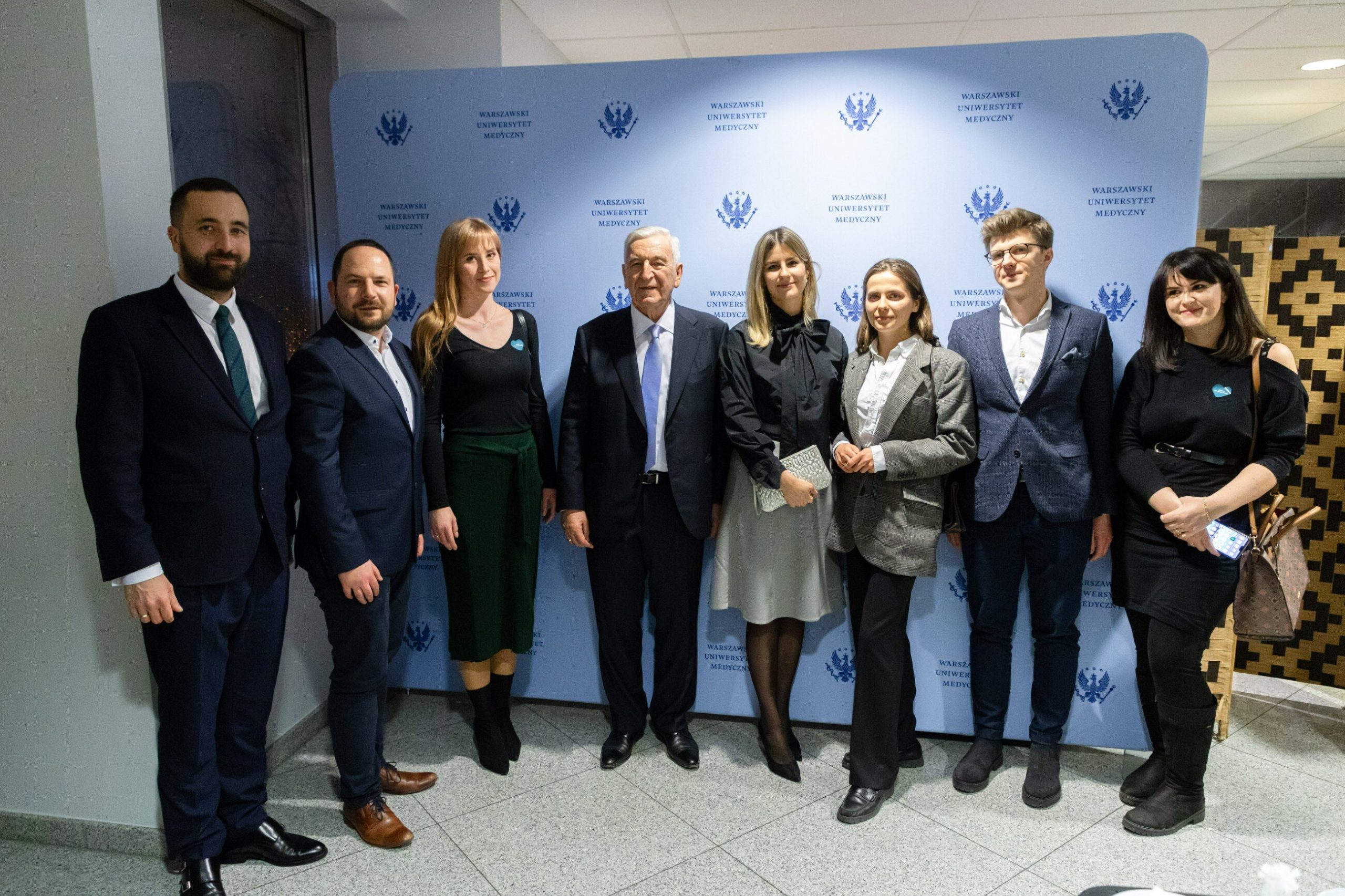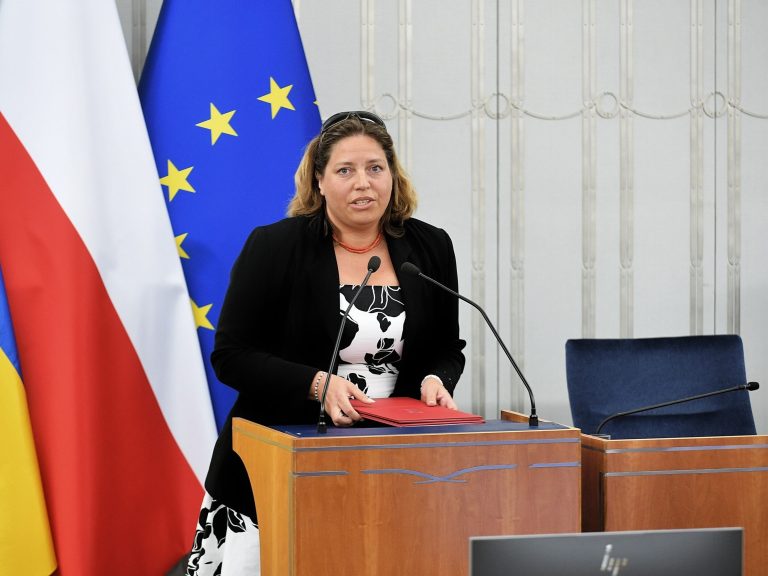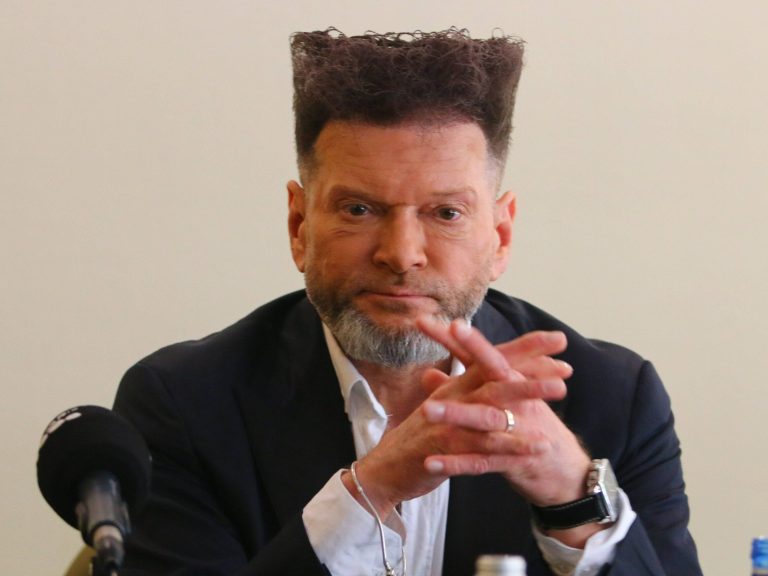Celebration and medicine: quadruple anniversary of prof. Jerzy Szaflik with a presentation of medical innovations

The 80th birthday, 55th anniversary of professional work, 50th anniversary of receiving the title of eye disease specialist and 33th anniversary of work at the Medical University of Warsaw were recently celebrated by prof. Jerzy Szaflik, ophthalmological authority. Numerous guests of the event organized on this occasion had the opportunity to hear about innovative screening projects developed under his leadership.
The ceremony was organized on February 5, 2024 in the auditorium of the Medical University of Warsaw, with which Prof. Szaflik has been involved for over three decades as a long-time head of the Department and Clinic of Ophthalmology of the Second Faculty of Medicine and as a lecturer and educator of several generations of ophthalmologists. Many of them appeared at the gala, but the meeting guests also included the Rector of the Medical University of Warsaw, Prof. Zbigniew Gaciong, representative of the Ministry of Science and Higher Education, Ph.D. Krzysztof Żyndul, or representatives of social and political elites, including: former president of the Republic of Poland, Bronisław Komorowski.
There were also collaborators of prof. Szaflik from the Independent Public Ophthalmological Hospital in Warsaw, which he headed for 17 years from its establishment, and the Laser Eye Microsurgery Center in Warsaw, the largest private ophthalmology clinic in the country he runs. They include the birthday boy’s son, also an outstanding ophthalmologist, prof. Jack. P. Szaflik, who gave a presentation about his father, full of professional and private interesting facts. However, the highlight of the event was a mini-scientific symposium, during which the research developed under the leadership of Prof. Jerzy Szaflik, two extremely innovative screening projects – for glaucoma and Alzheimer’s disease.
Curiosities and innovations
The first one was presented by Dr. Hab. n. med. Anna Zaleska-Żmijewska, member of the interdisciplinary team of specialists who brought it to life. E-glaucoma is a ready-made screening platform that has been tested for several years and has been using artificial intelligence, which – if implemented into the public health care system – could revolutionize the detection of glaucoma in Poland.
Tests using it are much cheaper, simpler and faster than individual ophthalmological tests for glaucoma, offering comparable reliability. They do not require the presence of a doctor or medical staff, which makes it easier to conduct them on a large scale. The speaker emphasized that the popularization of e-glaucoma tests could save the eyesight of many patients – only early detection of glaucoma, before the symptoms of the disease appear, gives a chance for satisfactory results in the treatment of this “insidious” disease.
Diagnostics using e-glaucoma only requires two short, non-contact tests: a color photo of the fundus of the eye and measurement of intraocular pressure. Artificial intelligence assigns their results to the “healthy” or “sick” category, using the so-called a neural network, or – in simple terms – a knowledge base based, among others, on thousands of fundus photos of sick and healthy people have already been entered into the system. You receive the test result just a few minutes after its completion, in the form of an SMS or e-mail. It determines the suspicion of glaucoma with a probability of up to approximately 80%. If the system suspects a disease, the test result will include a recommendation to consult an ophthalmologist.
New, promising discoveries
The second platform for early detection of Alzheimer’s disease is to operate on a similar principle, the concept of which was presented by Anna I. Borucka, MD, PhD. It was discovered that the pathological changes caused by this disease are visible in the retina before the patient’s clinical symptoms appear. Therefore, this ophthalmological examination, macular angioOCT, may become the basis for early, effective diagnosis of Alzheimer’s disease on a large scale in the future, especially since it is faster, repeatable, non-invasive and less expensive than current methods of detecting this disease. The condition, of course, is to create an appropriate algorithm that – as in the case of e-glaucoma – will allow artificial intelligence to be used to interpret test results within the screening platform. Work in this area is already underway, led by prof. Jerzy Szaflik.
Taking advantage of the opportunity, the celebrant expressed his thanks to the members of both teams responsible for these promising projects, as well as the rector and colleagues from the Medical University of Warsaw, emphasizing that he had always received their great support for the medical innovations being introduced. The event was complemented by a lecture about the Ophthalmic Institute in Warsaw and the role of its director, Dr. Wiktor F. Szokalski, in the creation of this ophthalmological center, recognized in Europe, whose fascinating history was interrupted by World War II.






